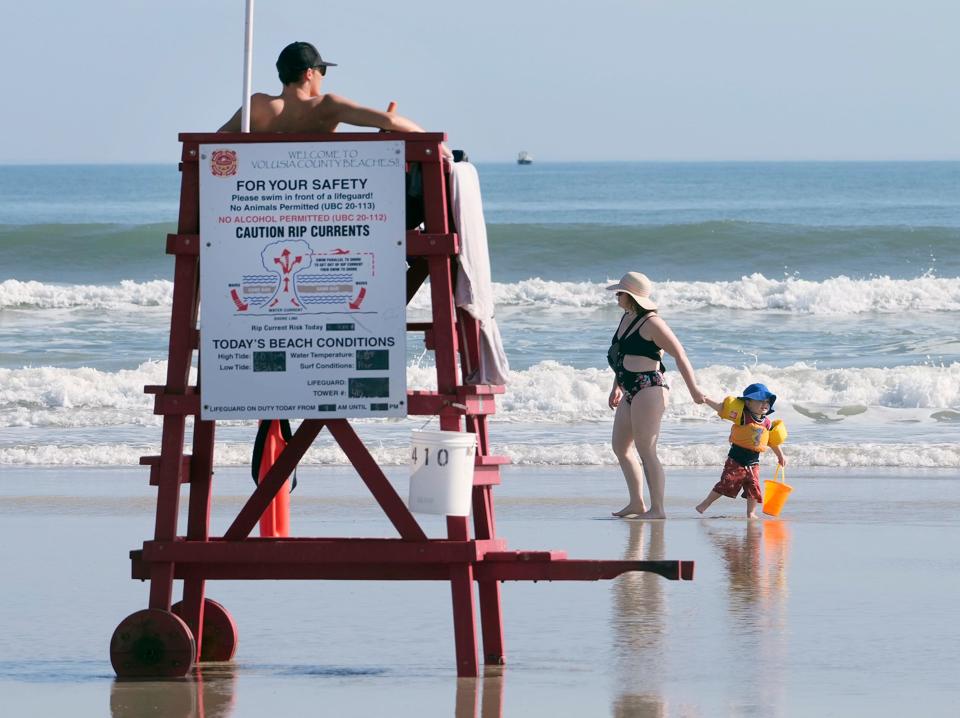Skin cancer protection tips: Yes, sunscreen is a must
With summer beach vacation season in full swing, it’s a good time for a reminder about the importance of protecting your skin from the sun.
Most skin cancers are caused by too much exposure to ultraviolet (UV) rays, according to the Centers for Disease Control and Prevention. To lower your risk of getting skin cancer, you should protect your skin from UV rays from the sun and from artificial sources like tanning beds and sunlamps.
What's the best way to protect skin from UV rays?
“Sunscreen is a must,” according to Dr. Fayne Frey, a nationally known dermatologist who covers scientific studies that show the health benefits of applying daily sunscreen in a new book, “The Skincare Hoax: "How You’re Being Tricked into Buying Lotions, Potions & Wrinkle Cream."

That advice is at the top of a list of eight essential tips that Frey offers to prevent skin damage and promote cancer protection.
More: Take skin cancer seriously
Keep these recommendations in mind on your summer beach getaways:
Always use sunscreen
Adults should use a minimum of 30 SPF. A broad-spectrum sunscreen with an SPF of 30 or higher is recommended for all adults.
Sensitive skin? Choose sunscreen wisely
Kids and those with sensitive skin should use mineral sunscreens. Those that contain titanium dioxide and zinc oxide filters.
Avoid direct sun exposure
Direct sun exposure should be avoided at all times. Ultraviolet light from the sun does penetrate clouds and therefore sunscreen should be applied even on overcast days. Remember that no sunscreen is 100% protective.
Don't tan until it hurts
After five sunburns your risk of melanoma doubles. Frequent tanning and sunburn increase the incidence of skin damage and skin cancer.
Spray tan lotions don't replace sunscreen
Spray tans and self-tanner lotions are not harmful to the skin, but you still need to apply SPF. They do not offer any protection from the sun's rays.
Consider Vitamin D supplements
If you’re Vitamin D deficient, take a supplement; do not sit in the sun. The AAD does not recommend getting Vitamin D from direct, unprotected sun exposure. If you’re diagnosed with this deficiency, take supplements and use SPF protection.
Beware of skin cancer, even if you don't easily burn
Skin cancer occurs in all skin types. The incidence of skin cancer is higher among lighter-complected individuals; however, skin cancer does occur in all skin types.
Get an annual skin exam
As part of a complete early detection strategy, the Skin Cancer Foundation recommends a check-up annually for adults, or more often if you are at a higher risk of skin cancer, for a full body professional skin exam.
This article originally appeared on The Daytona Beach News-Journal: Essential tips for protecting your skin against damage and skin cancer

